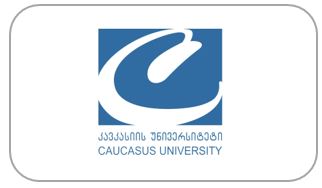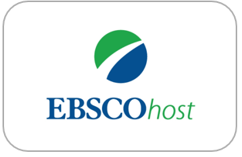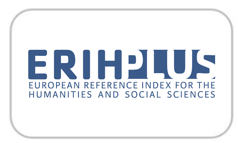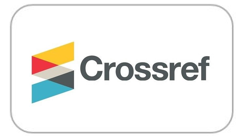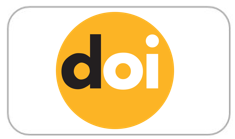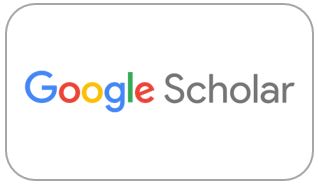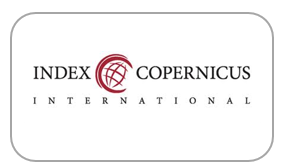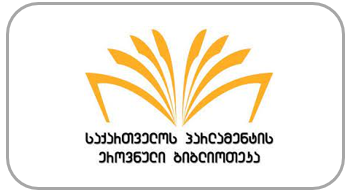სარედაქციო პოლიტიკა
ღია წვდომის პოლიტიკა და საავტორო უფლება
„ჯანმრთელობის პოლიტიკა, ეკონომიკა და სოციოლოგია“ არის ღია წვდომის ჟურნალი, რაც ნიშნავს, რომ ჟურნალის ონლაინ "გამოქვეყნებული" სტატიები გამოქვეყნებისთანავე სრულად არის უფასოდ ხელმისაწვდომი იმ პრინციპის გათვალისწინებით, რომ კვლევაზე თავისუფალი ხელმისაწვდომობა ხელს უწყობს ცოდნის გლობალურ მიმოცვლას.
”ჯანდაცვის პოლიტიკა, ეკონომიკა და სოციოლოგია” სარგებლობს Creative Commons Attribution 4.0 საერთაშორისო ლიცენზიით (CC BY 4.0) https://creativecommons.org შესაბამისად, მომხმარებლებს შეუძლიათ ჟურნალის სტატიების სრული ტექსტების ნახვა, წაკითხვა, ჩამოტვირთვა, კოპირება, გაზიარება და დაბეჭდვა წინასწარი რეგისტრაციისა და გამომცემლის ან/და ავტორის წინასწარი ნებართვის გარეშე, ავტორისა და გამომცემლის სათანადო დამოწმებით;
მომხმარებლებს ასევე შეუძლიათ დაათვალიერონ სტატიები ინდექსაციისთვის, გადასცენ ისინი როგორც მონაცემები პროგრამულ უზრუნველყოფას, ან გამოიყენონ ისინი სხვა კანონიერი მიზნით, ფინანსური, სამართლებრივი ან ტექნიკური ბარიერების გარეშე.
ავტორი ინარჩუნებს საავტორო უფლებებს და ანიჭებს ჟურნალს პირველადი გამოცემის შესაძლებლობას.
ავტორებს ასევე უფლება აქვთ გადაამუშაონ საკუთარ ნამუშევრები, თუმცა სავალდებულოა, ორიგინალური გამოცემის წყაროდ მიუთითონ პირველწყარო.
სადეპოზიტო პოლიტიკა
ჟურნალის ღია წვდომის ლიცენზიის თანახმად, სტატიის გამოქვეყნებისთანავე, ავტორებს უფლება აქვთ განათავსონ თავიანთი სტატიის საბოლოო გამოქვეყნებული ვერსია, ისევე როგორც ხელნაწერი და გამოსაცემად მიღებული ვერსიები ინსტიტუციონალურ ან/და ცენტრალურ არქივებში, იმ პირობით, რომ ჟურნალი მითითებული იქნება როგორც გამოქვეყნების თავდაპირველ ადგილი და დაცული იქნება ციტირების წესი. ავტორებს რეკომენდაცია ეძლევათ, PDF ვერსიის განთავსების გარდა მიუთითონ გამოქვეყნებული სტატიის ელექტრონული მისამართი.
ჟურნალი იყენებს ციფრული არქივირების პოლიტიკას. ჟურნალი დაცულია PKP Preservation Network (PKP PN) ქსელის საშუალებით, რომელიც იყენებს LOCKSS ტექნოლოგიას, რაც უზრუნველყოფს მასალების გრძელვადიან ციფრულ შენახვას. ყველა სტატია ასევე ინახება საქართველოს პარლამენტის ეროვნულ ბიბლიოთეკაში ეროვნული სავალდებულო სადეპოზიტო მოთხოვნების შესაბამისად.
გამოქვეყნების ღირებულება
სტატიების წარდგენა, განხილვა, რედაქტირება და გამოქვეყნება ჟურნალში „ჯანდაცვის პოლიტიკა, ეკონომიკა და სოციოლოგია“ უფასოა.
რეცენზირება, გამოქვეყნების პროცედურა
ჟურნალში სტატიის გამოსაქვეყნებლად სავალდებულოა ორი ექსპერტის ფარული რეცენზია. რეცენზენტს თითოეული სტატიისთვის ირჩევს მთავარი რედაქტორი, სარედაქციო კოლეგიის წევრებთან კონსულტაციის გზით.
რეცენზენტები არიან სხვადასვა უნივერსიტეტებში მოღვაწე მეცნიერები, რომელთა კომპეტენცია და აკადემიური შრომები თანხვედრაშია სტატიის შინაარსთან.
ნაშრომი ქვეყნდება ორი დადებითი რეცენზიის საფუძველზე. შენიშვნების, ან უარყოფითი დასკვნის შემთხვევაში, ავტორს შეუძლია, ერთი კვირის განმავლობაში წარმოადგინოს საკუთარი არგუმენტები. საჭიროების შემთხვევაში, სტატია შეიძლება გადაიგზავნოს დამატებითი რეცენზირებისათვის.
სტატიის გამოქვეყნების შესახებ საბოლოო დასკვნას იღებს ჟურნალის სარედაქციო კოლეგია.
სტატიის მიღების შესახებ ავტორებს ეცნობებათ ელექტრონული ფოსტის საშუალებით.
გამოქვეყნების პროცედურა შედგება 9 ეტაპისაგან და სტატიის მიღებიდან სრულად მოიცავს არაუმეტეს 28 დღისა.
I ეტაპი: სტატიის მიღება ჟურნალის ოფიციალურ ელექტრონულ ფოსტაზე tverulava@cu.edu.ge -
არაუგვიანეს 15 ივნისი/არაუგვიანეს 15 დეკემბერი;
II ეტაპი: ტექნიკური პარამეტრების შესაბამისობის დადგენა. შეუსაბამობის შემთხვევაში სტატია აღარ
განიხილება, რის შესახებაც ეცნობება ავტორს - 2 დღე;
III ეტაპი: პლაგიატის შემოწმება პროგრამის მეშვეობით. პლაგიატის აღმოჩენის შემთხვევაში სტატია აღარ
განიხილება, რის შესახებაც ეცნობება ავტორს - 1 დღე;
IV ეტაპი: თემატიკის მიხედვით რეცენზენტის შერჩევა და ნაშრომის გადაგზავნა 2 დღე
V ეტაპი: რეცენზენტების მიერ დასკვნების მომზადება 10 დღე
VI ეტაპი: რეცენზენტების დასკვნების განხილვა 2 დღე
VII ეტაპი: სარედაქციო კოლეგიის გადაწყვეტილება და ავტორისათვის შეტყობინების გაგზავნა 2 დღე
VIII ეტაპი: საჭიროების შემთხვევაში, ავტორებისათვის სტატიის შემდგომი დამუშავების დრო 7 დღე
IX ეტაპი: საჭიროების შემთხვევაში, გადამუშავებული სტატიების გამოქვეყნების თაობაზე სარედაქციო
კოლეგიის მიერ გადაწყვეტილების მიღება - 2 დღე
სტატიის შეფასების კრიტერიუმები:
სტატიის სტრუქტურა (აკმაყოფილებს მოთხოვნებს/ გასაუმჯობესებელია);
სტატიის სიახლე და კონტრიბუცია შესაბამის სფეროში (აკმაყოფილებს მოთხოვნებს/გასაუმჯობესებელია);
მეთოდოლოგიური გამართულობა და მოსაზრებების არგუმენტირებულობა (აკმაყოფილებს მოთხოვნებს/ გასაუმჯობესებელია);
კვლევის თეორიული და პრაქტიკული შედეგები (აკმაყოფილებს მოთხოვნებს/გასაუმჯობესებელია);
ციტირების წესების დაცვა (აკმაყოფილებს მოთხოვნებს/ გასაუმჯობესებელია).
პლაგიატის პრევენცია
ჟურნალის სარედაქციო პოლიტიკა გულისხმობს კვლევითი ეთიკისა და კეთილსინდისიერების პრინციპების დაცვას, შესაბამისად, მიუღებელია პლაგიატის ნებისმიერი ფორმა;
სტატიების შემოწმება ხდება პლაგიატის ამოცნობის პროგრამით Turnitin, რომელიც ინტეგრირებულია Moodle-თან (Turnitin + Moodle). ჟურნალი პროგრამულ უზრუნველყოფებს საშუალებას აძლევს ავტომატურად დაათვალიერონ ჟურნალის შინაარსი.
საგამომცემლო ეთიკა
საგამომცემლო საქმეში ჩართული ყველა სუბიექტისათვის აუცილებელია ეთიკურ ნორმებზე შეთანხმება. ჟურნალის ეთიკური კოდექსი ეფუძნება საგამომცემლო ეთიკის კომიტეტის საუკეთესო პრაქტიკულ პრინციპებს Committee on Publication Ethics https://publicationethics.org/.
მთავარი რედაქტორის მოვალეობები
სამართლიანობა - ჟურნალში წარმოდგენილი ნაშრომები ფასდება მათი ინტელექტუალური შინაარსის მიხედვით, განურჩევლად ავტორთა რასის, სქესის, სექსუალური ორიენტაციის, რელიგიური მრწამსის,
ეთნიკური წარმოშობის, მოქალაქეობის ან პოლიტიკური შეხედულებებისა.
კონფიდენციალურობა - მთავარი რედაქტორი და სარედაქციო კოლეგია ვალდებულნი არიან წარმოდგენილი ნაშრომის შესახებ ნებისმიერი ინფორმაცია არ მიაწოდონ სხვა, გარეშე პირებს. სტატის ავტორ(ებ)ს ეცნობება მხოლოდ რეცენზენტ(ებ)ის დასკვნა და საჭიროების შემთხვევაში შენიშვნები გასასწორებლად. რეცენზენტ(ებ)ის ვინაობა რჩება კონფიდენციალურად.
ინტერესთა კონფლიქტი - განსახილველად წარმოდგენილი გამოუქვეყნებელი მასალები არ უნდა იქნეს გამოყენებული გამომცემლის საკუთარ კვლევაში, ავტორ(ებ)ის წერილობითი თანხმობის გარეშე.
საგამომცემლო გადაწყვეტილებები - ჟურნალის მთავარი რედაქტორი პასუხისმგებელია მიიღოს საბოლოო გადაწყვეტილება წარმოდგენილი სტატიების გამოქვეყნების შესახებ. მთავარმა რედაქტორმა უნდა იხელმძღვანელოს ჟურნალის სარედაქციო კოლეგიის პოლიტიკის ძირითადი პრინციპებით და
მოქმედი კანონმდებლობის მოთხოვნებით, რომ არ ქონდეს ადგილი ცილისწამების, საავტორო
უფლებების დარღვევის და პლაგიატობის ბრალდებებს.
რეცენზენტების მოვალეობები
პუბლიკაციის შესახებ გადაწყვეტილებებში მონაწილეობა - რეცენზენტები ეხმარებიან მთავარ რედაქტორს პუბლიკაციის შესახებ გადაწყვეტილების მიღებაში და ავტორთან საგამომცემლო ფორმატში მისაღები კომუნიკაციის მეშვეობით (ზემო აღნიშნული კონფიდენციალურობის დაცვით), შეიძლება დაეხმარონ ავტორსაც ხელნაწერის გაუმჯობესებაში.
თავისდროულობა - თუ რეცენზენტ(ებ)ი მიიჩნევს თავს არაკვალიფიციურად კონკრეტული ნაშრომის განხილვაში, ან ვერ შეძლებს მის დროულად რეცენზირებას, ამის შესახებ დაუყოვნებლივ უნდა აცნობოს მთავარ რედაქტორს.
კონფიდენციალურობა - რედაქციაში წარმოდგენილი ნებისმიერი ნაშრომი, ითვლება კონფიდენციალურ დოკუმენტად. მისი სხვა პირებისთვის ჩვენება დაშვებულია მხოლოდ მთავარი რედაქტორის ნებადართვით.
ობიექტურობის სტანდარტები (ნორმები) - რეცენზენტებმა უნდა შეაფასონ ნაშრომი ობიექტურად, ჟურნალის მიერ დაწესებული შეფასების სისტემის მიხედვით.
წყაროების აღიარება (დადასტურება) - რეცენზენტებმა უნდა მოახდინონ ნაშრომში გამოყენებული იმ წყაროების იდენტიფიცირება, რომელიც არ ყოფილა ციტირებული ავტორების მიერ. რეცენზენტმა მთავარი რედაქტორი უნდა ჩააყენოს საქმის კურსში, ნებისმიერი არსებითი მსგავსების ან წარმოდგენილ ნაშრომსა და უკვე გამოქვეყნებულ მონაცემებს შორის გადაცდენის აღმოჩენის შემთხვევაში.
ინტერესთა კონფლიქტის გამორიცხვა - რეცენზენტებისგან მიღებული მოსაზრებები კონფიდენციალურია და არ უნდა იქნას გამოყენებული პირადი მიზნებისთვის. ხელნაწერის რეცენზენტებად არ უნდა იქნეს არჩეული ის ადამიანები, რომელთაც აქვთ რაიმე სე სახის ინტერესთა კონფლიქტი წარმოდგენილი ნაშრომის ნებისმიერ ავტორთან/კომპანიასთან/ორგანიზაციასთან გამომდინარე კონკურენტული,
თანამშრომლობითი, ან სხვა რაიმე სახის ურთიერთობიდან ან კავშირიდან.
ავტორთა მოვალეობები
ანგარიშგების ნორმები/სტანდარტები - წარმოდგენილი ნაშრომი უნდა შეიცავდეს ობიექტურ მსჯელობას და ორიგინალური კვლევის შედეგებს. ხელნაწერში დიდი სიზუსტით უნდა იქნეს წარმოდგენილი ძირითადი მონაცემები.
თაღლითობა, განზრახ მოცემული არაზუსტი ინფორმაცია და აკადემიური პატიოსნების ნორმების
დარღვევის ნებისმიერი გამოვლინება მიუღებელია ჟურნალის სარედაქციო პოლიტიკისათვის.
ორიგინალობა და პლაგიატი - ავტორებმა უნდა დაასაბუთონ, რომ მათ მიერ შესრულებული ნაშრომი ორიგინალს წარმოადგენს. ავტორებმა გამოყენებული წყაროები, ციტატები და ამონარიდები წყაროებიდან, რომლებმაც წარმოდგენილი ნაშრომის შინაარსზე გადამწყვეტი გავლენა მოახდინა, უნდა მიუთითონ ჟურნალში არსებული წესის შესაბამისად, აკადემიური პატიოსნების ნორმების სრული დაცვით.
გამოსაქვეყნებელმა ნაშრომმა უნდა დააკმაყოფილოს კავკასიის უნივერსიტეტის პლაგიატის დებულებთ გამოსაქვეყნებელი სტატიების მიმართ განსაზღვრული მოთხოვნები.
მრავალჯერადი ან კონკურენტული პუბლიკაცია - ჟურნალისათვის მიუღებელია და ითვლება არაეთიკურ საპუბლიკაციო საქციელად ერთი და იგივე ხელნაწერის ერთზე მეტი ჟურნალისთვის პარალელური წარდგენა.
ხელნაწერის ავტორობა - ავტორობა უნდა შემოიფარგლოს მხოლოდ იმ პიროვნებებზე, ვინც მნიშვნელოვანი წვლილი შეიტანა წარმოდგენილი კვლევის კონცეფციაში, დიზაინში, შსრულებასა თუ ინტერპრეტირებაში. ყველა, ვინც შედარებით მნიშვნელოვანი წვლილი შეიტანა, ჩამოთვლილ უნდა იქნეს, როგორც თანაავტორი. პირველმა ავტორმა უნდა უზრუნველყოს, რომ ყველა არსებული თანაავტორი
(ზემოთ აღნიშნული განსაზღვრების თანახმად), შევიდეს ხელნაწერის ავტორთა ჩამონათვალში
და რომ ყველა ავტორმა უნდა ნახოს და დაადასტუროს ნაშრომის საბოლოო ვერსია და მოხდეს
მისი გამოსაქვეყნებლად წარდგენის შეთანხმება.
გამჭვირვალობა და ინტერესთა კონფლიქტი - ავტორმა უნდა დააფიქსიფროს, თუ არსებობს რაიმე ფინანსური ან სხვა არსებითი ინტერესთა კონფლიქტი, რამაც შეიძლება გავლენა მოახდინოს შედეგებზე ან ნაშრომში მათ ინტერპრეტაციაზე. პროექტის ფინანსური მხარდაჭერის ყველა წყარო უნდა იყოს ყველასათვის გამჭვირვალე/ცნობილი.
ფუნდამენტური შეცდომები გამოქვეყნებულ ნაშრომში - როდესაც ავტორი აღმოაჩენს მნიშვნელოვან შეცდომას ან უზუსტობას თავის გამოქვეყნებულ ნაშრომში, ავტორის ვალდებულებაა, დაუყოვნებლივ (სასწრაფოდ) აცნობოს ამის შესახებ რედაქტორს ან გამომცემელს და ითანამშრომლოს მასთან. ეს აუცილებელია ნაშრომის ნომრიდან ამოღებისათვის ან მისი შესაბამისი ჩასწორებით გამოქვეყნებისათვის.
გამომცემლის თანხმობა
იმ შემთხვევაში, თუ დაფიქსირდა სავარაუდო ან დამტკიცებული მეცნიერული გადაცდომა,
თაღლითობა ან პლაგიატი, გამომცემელმა უნდა იზრუნოს შესაბამისი ანგარიშის გამოქვეყნებაზე,
სადაც მითითებული იქნება დაშვებული შეცდომა და შეცდომის გასწორება ან უფრო სერიოზულ
შემთხვევებში, მოახდინოს შესაბამისი ნომრიდან აღნიშნული სტატიის მთლიანად ამოღება.
